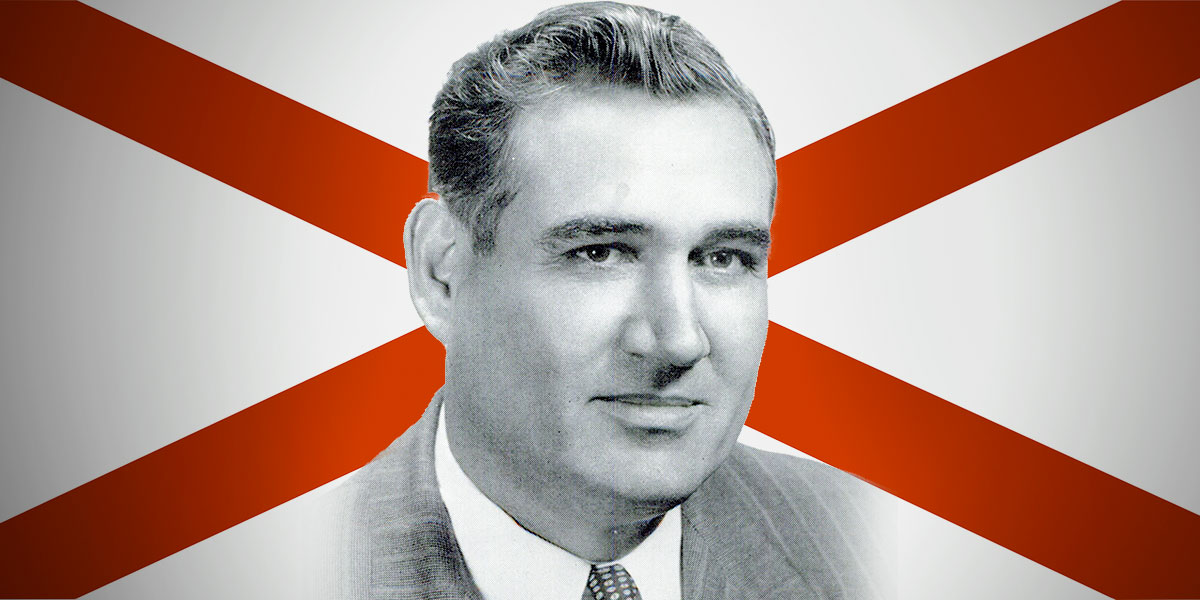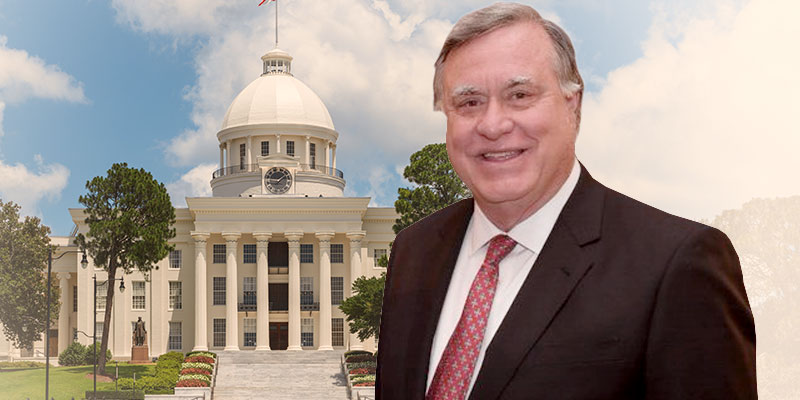Alabama has never had a more colorful governor than Big Jim Folsom. He also was a brilliant politician who understood the importance of name identification.
My ninth-grade civics teacher was Miss Mary Lamb. She had taught school for many years and in fact had taught both my mama and daddy in high school. Besides our civics lesson she would impart wisdom upon us in the way of old sayings. One she particularly liked was, “Fools’ names, fools’ faces, always found in public places.”
This one kind of bothered me because I was a budding politician and was already class president. I had learned that one of the first courses of action was to plaster your name all over school. Later in life, I ran for and won election to the Alabama Legislature. Every time we would go out to put up campaign signs, I would cringe when I thought about Miss Lamb’s admonition. However, as a student of politics, I knew that name identification was essential. You cannot expect a voter to vote for you if they have not even heard of you.
One of the best stories I know on Big Jim Folsom focused on his belief in the importance of name identification. Big Jim’s first term had broken the moneyed interests’ stronghold on the governor’s office. But the big city dailies and the legislators were still controlled by the Big Mules of Birmingham and the Big Planters of the Black Belt. They hated Big Jim’s folksiness. The big dailies like the Birmingham News, Montgomery Advertiser, and Mobile Press Register would poke fun at Big Jim and try to discover a scandal on a daily basis. The legislature constantly tried to impeach him.
One of the papers, after days of digging, felt they had another patented scandal to reveal on Folsom. They called to tell him that they had an expose on his administration and out of courtesy wanted to get his side of the story.
Now Big Jim could not care less what the big city press said about him. They had written the harshest things about Folsom that could ever be written. It had not affected him one bit with his loyal rural friends and constituents, so it is not surprising that Big Jim treated the big city press with contempt and disdain.
When they called, he said, “Boys, come on down and see Big Jim and tell me what you got on me today. I haven’t seen y’all in a week or two. Come on down right now.”
When they got down to the office, he greeted them with his shoes off and his bare feet resting on his desk, reared back in his chair, with a grin on his face. He said, “Boys, hit me with your best shot. What y’all got on ole Jim?”
They said, “Governor, this is no laughing matter. We have a list here of 37 people who you hired over in the Highway Department and circumvented the merit system to put them on the state payroll.”
Big Jim laughed and glanced at their list and said, “You lying daily newspapers, you lying about Big Jim again, lying, lying, lying. I got a new list right here and I haven’t hired 37 people, I’ve hired 72, and the only merit they got is that they’re Big Jim’s friends.”
The reporters were incredulous. They said, “Governor, we are going to put that in the paper tomorrow.” Big Jim smiled and said, “Boys, I don’t care what you write about me, just spell my name right!”
Big Jim knew the cardinal rule of name identification. The saying is now famous among Alabama politicians, “just spell my name right.” Big Jim coined it.
Even though Big Jim was fully vetted by the big city dailies on an almost daily basis, he was governor in an era where there was no ethics law and no overt political prosecution unlike today. Big Jim was known as the “little man’s big friend.” His campaign song was “Y’all Come.”
I hope you have enjoyed this five-part series on Big Jim Folsom.
See you next week.
Steve Flowers’ weekly column appears in more than 60 Alabama newspapers. He served 16 years in the state Legislature. Steve may be reached at www.steveflowers.us.









